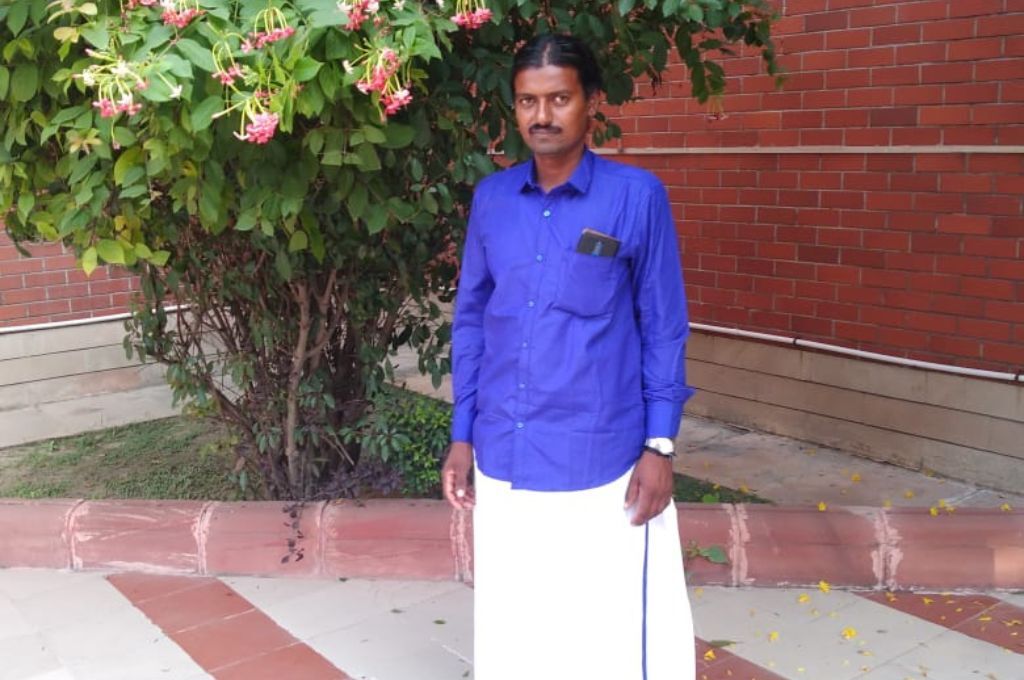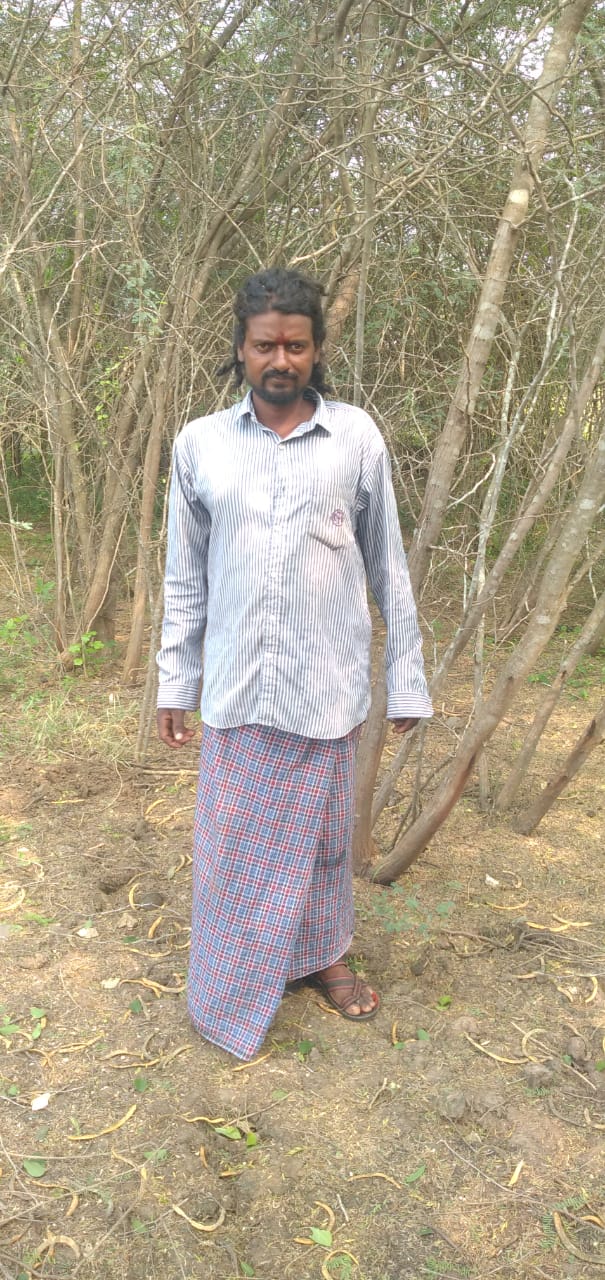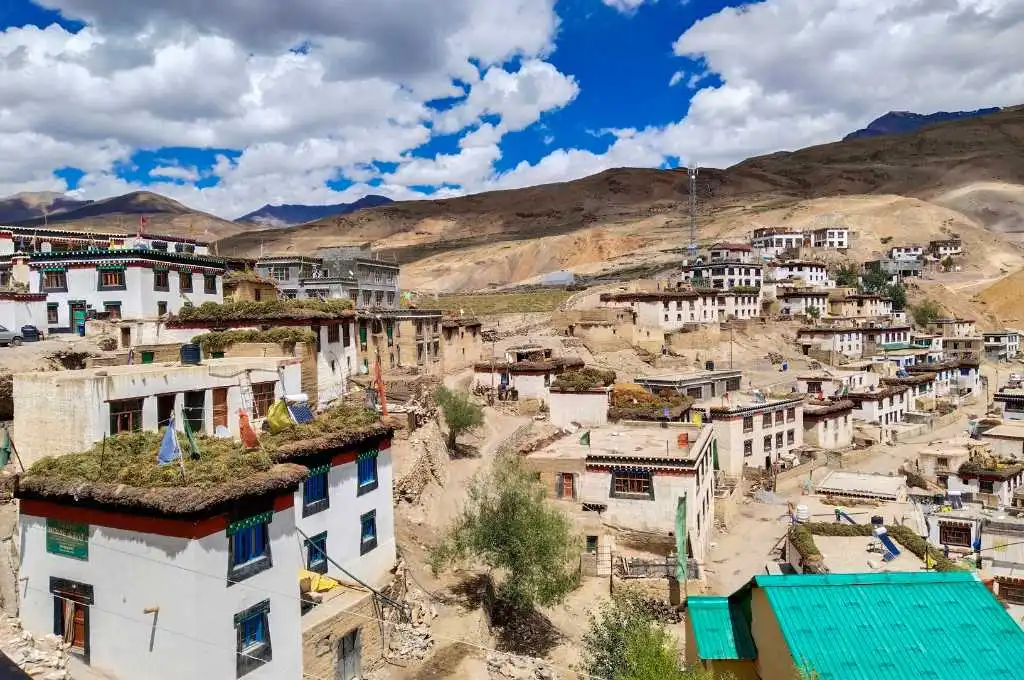I come from the Irular community, a particularly vulnerable tribal group, in Tamil Nadu. My wife, three children, and I live in Dr Abdul Kalam Puram, a large colony set up by the Tamil Nadu government in Tiruvannamalai district’s Meesanallur village. Dr Abdul Kalam Puram is home to 143 Irular families, which includes 100 families like mine that were once trapped in bonded labour.
As a bonded labourer, I worked for a man who ran a tree-cutting business in Tiruvannamalai. He paid us wages intermittently but controlled our entire day, deciding when we woke up, when we ate, and what we ate. We had no agency over our own lives. In 2013, we, along with two other families, were rescued by government officers. We were issued release certificates, which freed us of any debt or obligation to our former owner and made us eligible for compensation and rehabilitation from the government.
On our release, we settled in the village of Peranamallur near Vandavasi in Tiruvannamalai. In 2019, the Tamil Nadu government approached us with the offer to resettle us in a new housing colony they were building. We were promised proper houses, jobs, and one milch animal per family—in other words, a better life. In 2020, we moved to Dr Abdul Kalam Puram and have been living here ever since.
Today, I own five cows and work at the government-run charcoal-making unit within the colony. I am also an elected community leader, responsible for resolving disputes and conveying my people’s needs and demands to local government authorities. In this colony, we Irulars are connected by our shared history of bondage, which makes us part of one big family.

5.00 AM: I wake up and tend to my cattle. Back in Peranamallur, we watched other people with their cows and goats and wondered if we would ever own an animal ourselves. But here, each family has been given a cow. The government has also set up a milk society through which we can sell milk directly to Aawin, the milk cooperative. When I am done milking for the morning, I deliver the milk to the society.
Around 7 am, I go to the forest to collect wood. We have been granted permission to cut velikaathaan, an invasive species of thorny shrubs. We carry it to the charcoal-making unit and burn it to make charcoal. We do this work throughout the year, except during the monsoon when the wooded areas are waterlogged. In a single cycle, we produce approximately 10 tonnes of charcoal. For each tonne, a person earns INR 6,000. This is INR 1,000 more than what people earn in neighbouring villages for making the same amount of charcoal.
Charcoal-making is just one of the occupations in the colony; we can also work at a brick kiln, a sanitary pad–making unit, a paper bag–making unit, and so on. We have formed common livelihood groups (CLGs), with a fixed number of members, for each occupation. For example, the charcoal unit has 16 people. Our work is monitored by the government to ensure all units function well.
People are free to switch to other business units if the work doesn’t suit them. Each CLG keeps a log of the number of days a person has worked and pays them accordingly, and when they leave they also receive the dividend earned from the interest on savings. The CLGs meet monthly to discuss the progress of the business and to plan the way ahead.
What I like best about this work arrangement is that I am the master of my own time. No one to tell me how to live my life. What’s more, I have even managed to save money for my family, children, and our future, which I couldn’t do before.
10.00 AM: On the days that I don’t go to the charcoal unit, I work for my community, resolving their disputes. The families in Dr Abdul Kalam Puram come from different villages and we have had our fair share of disagreements and quarrels, especially in the initial days of moving here. But we have always found a solution.
I remember an incident where two families almost came to blows. One of them had goats and the other had plants. The goats ate the plants and a dispute broke out between the families, which grew so heated that community leaders had to intervene. We suggested building fences around both houses. Fencing has now become a common practice here.
Life is much better now, but it is our responsibility to identify how it can be further improved.
There are 13 leaders in the colony—all chosen by the community itself through elections held at the community hall. The leaders are constantly in touch with civil society organisations that work here and with the local government to seek solutions to the challenges we face.
One of these challenges is the distance we have to travel to reach the nearest hospital, which is 5 km away. We wrote to the collector, highlighting the inconvenience this posed because public transport services are irregular. Now, the district administration holds frequent medical camps within the colony itself. We also didn’t have a ration shop, but once we brought this to the collector’s attention, a defunct room in the colony was converted into a ration shop.
We would now like a bus service that can take our children to high school. The younger children attend an anganwadi in the colony itself, and students from the first to the eighth standard travel to school in the nearby village in an autorickshaw. However, older children have to travel 5 km to a high school if they want to study beyond standard eight. The nearest college is approximately 10 km away. I request the government to think about building a residential school and a college here.
We would also benefit from better roads and transport systems because we live on the outskirts of the city. Earlier, we lived in unhygienic conditions in our native village. Our homes were dilapidated and we were prone to all kinds of diseases. Life is much better now, but it is our responsibility to identify how it can be further improved.
6.00 PM: I return home and, until dinner at 8 pm, I spend time with my children. My son is in the seventh standard now. When he was younger, he hoped to be an IPS officer. There was a police station close to where we lived and he saw the respect with which the officers were treated. Now, after moving to this colony and witnessing the collector at work, he wants to be an IAS officer and serve his community. My elder daughter, who is in the fourth standard, wants to be a doctor. The youngest is only three years old. I hope for a bright future for all of them. They will grow up in a world where they can express themselves freely. They can travel, visit relatives, and do what they like—no one will stop them.
We plan to organise our festival Masi Magam in the colony soon. It’s an important festival for the Irular people and is celebrated in honour of the Goddess Kanniamma. We are currently raising funds to build our own temple here. As bonded labourers, we were never permitted to attend any celebration as a family; some of us always had to stay behind so the others would be sure to return.
I don’t miss anything about that life, and I’ll make sure my children never experience it.
As told to IDR.
—
Know more
- Read this article to understand why bonded labour is on the rise in India.
- Read this article to learn about the intergenerational nature of labour exploitation in mining areas.





